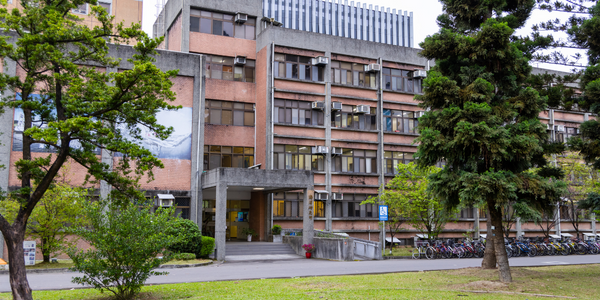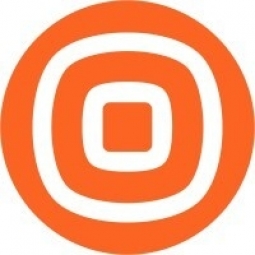Technology Category
- Networks & Connectivity - 5G
- Platform as a Service (PaaS) - Application Development Platforms
Applicable Industries
- Buildings
- Healthcare & Hospitals
Applicable Functions
- Facility Management
- Sales & Marketing
Services
- Testing & Certification
About The Customer
Biolab is a group of medical diagnostic laboratories that offer a full range of laboratory services in Jordan. Known for innovation, quality, and convenience, Biolab delivers timely, accurate results for improved patient care. It is the only laboratory in Jordan that has received the American Joint Commission International “JCI” accreditation as an independent laboratory, along with the European ISO 15189 certificate. Biolab is also certified by Jordan’s Ministry of Health and is adopted by all local banks and insurance companies.
The Challenge
Biolab, a leading medical diagnostic laboratory in Jordan, faced several challenges in maintaining customer engagement during the pandemic. The company's call centers were overloaded, especially during peak hours, leading to extended lag times for customers. Additionally, Biolab experienced a rapid expansion of its customer base due to its responsibility for PCR testing at multiple entry points into Jordan, in addition to its existing labs, drive-thru facilities, and house call service. This resulted in a significant influx of testers. Furthermore, Biolab's application was not appealing to patients, who preferred other channels to provide and receive information. The company needed to optimize its customer journey, automate communications through user-friendly processes, and provide round-the-clock support.
The Solution
To address these challenges, Biolab chose Infobip as its WhatsApp Business solution provider. Infobip's platform integrated seamlessly with Biolab's existing platform, establishing simple and clear communication flows to enhance the customer journey. With Infobip, Biolab enabled its customers to pre-register for the company’s COVID-19 screening centers, drive-through facilities, and house call services. Customers could provide their personal information, location, and appointment selection. They could also receive their latest lab results by providing their phone or transaction number and use the online booking system for blood work. Adding WhatsApp to its communication mix meant Biolab could engage with customers on their favorite channel.
Operational Impact
Quantitative Benefit

Case Study missing?
Start adding your own!
Register with your work email and create a new case study profile for your business.
Related Case Studies.

Case Study
Energy Saving & Power Monitoring System
Recently a university in Taiwan was experiencing dramatic power usage increases due to its growing number of campus buildings and students. Aiming to analyze their power consumption and increase their power efficiency across 52 buildings, the university wanted to build a power management system utilizing web-based hardware and software. With these goals in mind, they contacted Advantech to help them develop their system and provide them with the means to save energy in the years to come.

Case Study
Hospital Inventory Management
The hospital supply chain team is responsible for ensuring that the right medical supplies are readily available to clinicians when and where needed, and to do so in the most efficient manner possible. However, many of the systems and processes in use at the cancer center for supply chain management were not best suited to support these goals. Barcoding technology, a commonly used method for inventory management of medical supplies, is labor intensive, time consuming, does not provide real-time visibility into inventory levels and can be prone to error. Consequently, the lack of accurate and real-time visibility into inventory levels across multiple supply rooms in multiple hospital facilities creates additional inefficiency in the system causing over-ordering, hoarding, and wasted supplies. Other sources of waste and cost were also identified as candidates for improvement. Existing systems and processes did not provide adequate security for high-cost inventory within the hospital, which was another driver of cost. A lack of visibility into expiration dates for supplies resulted in supplies being wasted due to past expiry dates. Storage of supplies was also a key consideration given the location of the cancer center’s facilities in a dense urban setting, where space is always at a premium. In order to address the challenges outlined above, the hospital sought a solution that would provide real-time inventory information with high levels of accuracy, reduce the level of manual effort required and enable data driven decision making to ensure that the right supplies were readily available to clinicians in the right location at the right time.

Case Study
Intelligent Building Automation System and Energy Saving Solution
One of the most difficult problems facing the world is conserving energy in buildings. However, it is not easy to have a cost-effective solution to reduce energy usage in a building. One solution for saving energy is to implement an intelligent building automation system (BAS) which can be controlled according to its schedule. In Indonesia a large university with a five floor building and 22 classrooms wanted to save the amount of energy being used.

Case Study
Powering Smart Home Automation solutions with IoT for Energy conservation
Many industry leaders that offer Smart Energy Management products & solutions face challenges including:How to build a scalable platform that can automatically scale-up to on-board ‘n’ number of Smart home devicesData security, solution availability, and reliability are the other critical factors to deal withHow to create a robust common IoT platform that handles any kind of smart devicesHow to enable data management capabilities that would help in intelligent decision-making

Case Study
Gas Pipeline Monitoring System for Hospitals
This system integrator focuses on providing centralized gas pipeline monitoring systems for hospitals. The service they provide makes it possible for hospitals to reduce both maintenance and labor costs. Since hospitals may not have an existing network suitable for this type of system, GPRS communication provides an easy and ready-to-use solution for remote, distributed monitoring systems System Requirements - GPRS communication - Seamless connection with SCADA software - Simple, front-end control capability - Expandable I/O channels - Combine AI, DI, and DO channels








